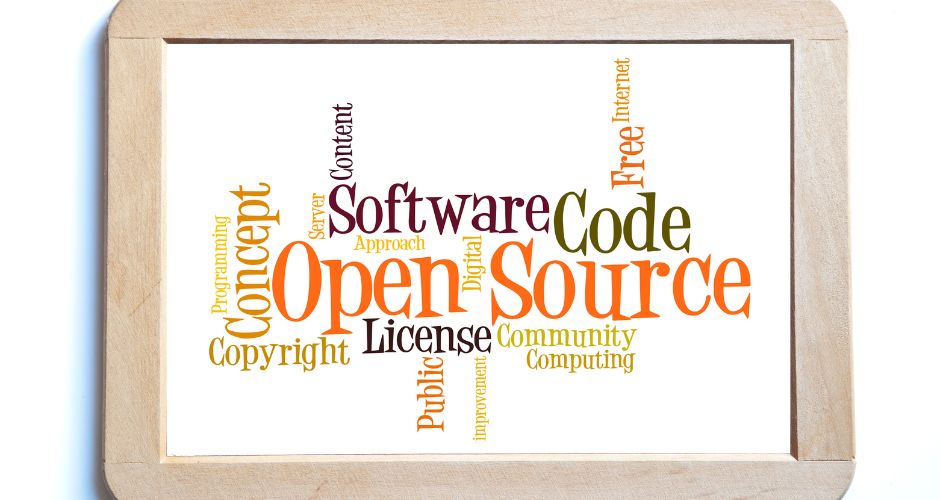In an era dominated by rapid technological advancements, Artificial Intelligence (AI) has emerged as a powerful force shaping our future. AI, often dubbed as the “new electricity,” has the potential to revolutionize industries, solve complex problems, and enhance our everyday lives. At the heart of AI development lies a crucial distinction: proprietary AI and open-source AI. In this article, we will debunk the myths surrounding open-source AI, explore its true nature, and understand its impact on the AI landscape.

Understanding Open Source
Before delving into the world of open-source AI, it’s essential to comprehend the concept of open source itself. Open source refers to software or technology for which the original source code is made freely available and may be redistributed and modified. The open-source community fosters collaboration, transparency, and innovation. It is responsible for remarkable projects such as the Linux operating system and the Mozilla Firefox web browser.
Myth 1: Open Source AI is Completely Free
One common misconception is that open-source AI is entirely cost-free. While it is true that open-source software can be downloaded and used without initial monetary investment, there are other costs involved. These include the resources needed for implementation, customization, and ongoing maintenance. In some cases, organizations may choose to invest in support services provided by third-party vendors.

Myth 2: Open Source AI Lacks Quality and Support
Another myth is that open-source AI is inferior in terms of quality and support when compared to proprietary AI. This is far from the truth. Many open-source AI projects are backed by large and active communities of developers and researchers. These communities continually improve the software, offer support through forums, and contribute to its evolution. Some well-known open-source AI projects include TensorFlow and PyTorch, both of which are renowned for their quality and widespread adoption.
Myth 3: Open Source AI is Not Secure
Security concerns often arise in discussions about open-source software. However, the security of open-source AI is not inherently compromised. The transparency of open source allows for rigorous scrutiny of the code, making it easier to identify and address security vulnerabilities. Furthermore, many open-source AI projects have dedicated security teams that actively work to enhance security measures.

Myth 4: Open Source AI is Not Suitable for Enterprises
Contrary to this myth, open-source AI has gained substantial traction in the enterprise world. Its flexibility and scalability make it an attractive choice for businesses seeking to harness AI’s potential. Enterprises can customize open-source AI solutions to meet their specific needs and integrate them into existing systems seamlessly.
Myth 5: Open Source AI Lacks Innovation
Some believe that open-source AI is stagnant and lacks innovation. On the contrary, open-source AI projects are hubs of innovation, with contributions from experts worldwide. The collaborative nature of open source fosters creativity and accelerates the development of cutting-edge AI technologies.

Conclusion
In the rapidly evolving landscape of AI, the myth of ‘Open Source‘ AI often obscures its true value and potential. Open-source AI is not just about cost savings; it represents a global community of innovators dedicated to advancing AI for the benefit of all. By debunking these myths, we can appreciate the contributions of open-source AI in driving progress, fostering collaboration, and shaping the future of artificial intelligence. As we continue to navigate the AI-driven world, it’s crucial to separate fact from fiction and embrace the opportunities that open source AI brings to the table.
FAQs
Q1: Is open source AI completely free?
A1: Open source AI is often free to download and use, but it’s essential to understand that “free” refers to the accessibility of the source code. While you won’t incur initial licensing costs, there may still be expenses involved in implementing, customizing, and maintaining open-source AI solutions. These costs can include the allocation of resources, technical expertise, and potentially, support services. Therefore, while open source AI can offer cost advantages, it’s not entirely devoid of expenses.
Q2: Is open source AI less secure than proprietary AI?
A2: Security concerns surrounding open-source AI are largely misconceptions. In fact, the transparency of open source can enhance security. The open-source community often reviews the source code for vulnerabilities, which can lead to quicker identification and resolution of security issues. Many open-source AI projects also have dedicated security teams that work to strengthen the software’s security measures. While no software is entirely immune to security threats, open source AI can be as secure as its proprietary counterparts, if not more so.
Q3: Can open source AI be customized for enterprise use?
A3: Absolutely. Open source AI is highly customizable, making it well-suited for enterprise applications. Enterprises can adapt open-source AI solutions to their specific needs and integrate them seamlessly into their existing systems. This flexibility allows for tailored solutions that align with an enterprise’s unique requirements, making open source AI a viable choice for businesses seeking to harness the power of AI.
Q4: How do open source AI projects ensure quality?
A4: Open-source AI projects often benefit from large and active communities of developers, researchers, and enthusiasts. This collaborative ecosystem ensures that the software undergoes continuous improvement and rigorous testing. Quality assurance is a fundamental aspect of open-source development, and issues are identified and addressed promptly through community contributions. As a result, many open-source AI projects, such as TensorFlow and PyTorch, are known for their high quality and reliability.
Q5: Is open source AI innovative?
A5: Yes, open source AI is a hotbed of innovation. The collaborative nature of open source fosters creativity and accelerates the development of cutting-edge AI technologies. Researchers, developers, and AI enthusiasts worldwide actively contribute to open-source AI projects, driving innovation in the field. As a result, open-source AI remains at the forefront of AI advancements, continually pushing the boundaries of what’s possible in artificial intelligence.
1 comment
It’s a shame you don’t have a donate button! I’d most certainly donate
to this brilliant blog! I guess for now i’ll settle
for bookmarking and adding your RSS feed to my Google account.
I look forward to fresh updates and will share this site with my Facebook group.
Chat soon!